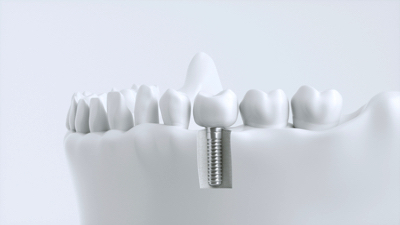Dental Implants: A Comprehensive Guide to Modern Tooth Replacement
Wiki Article
Dental implants have revolutionized the industry of restorative dentistry, offering a durable and good to look at solution for those who have lost teeth because of injury, decay, or disease. Unlike traditional dentures or bridges, Best Implant Dentist and Top Implant Specialist Crest Hill IL supply a permanent replacement that mimics the function and check of natural teeth. In this article, we’ll explore what dental implants are, the way the procedure works, their benefits, risks, and who may well be a good candidate.
What Are Dental Implants?
Dental implants are small, screw-like posts typically made from titanium that serve as artificial roots for replacement teeth. They are surgically inserted in the jawbone, where they bond while using bone by way of a process called osseointegration. Once the implant is securely anchored, a custom-made crown is attached, completing the restoration.

The Dental Implant Procedure
The dental implant process generally involves several stages:
Initial Consultation: A dentist or oral surgeon evaluates the patient’s dental health, takes X-rays or 3D scans, and develops cure plan.
Implant Placement: The titanium post is surgically implanted into the jawbone. Healing can take several months because bone fuses with all the implant.
Abutment Placement: Once healed, a little connector called an abutment is attached to the implant.
Crown Attachment: A custom crown, shaped and colored to check the surrounding teeth, is fixed for the abutment.
Some patients could also require bone grafting before implant placement when there is insufficient jawbone density.
Benefits of Dental Implants
Natural Appearance: Implants look and feel like natural teeth.
Durability: With health care, implants may last for decades.
Improved Oral Function: They restore full chewing power and get rid of the discomfort of removable dentures.
Bone Preservation: Implants stimulate the jawbone, preventing bone loss that occurs with missing teeth.
Speech and Confidence: They improve speech and boost self-esteem by a stable, attractive smile.
Risks and Considerations
While dental implants are often safe, they carry some risks:
Infection at the implant site
Nerve damage, that might cause pain or numbness
Implant failure as a result of poor osseointegration, specifically in smokers or people with chronic conditions like diabetes
Sinus issues if implants inside upper jaw protrude into sinus cavities
These risks are relatively rare, specially when the procedure is performed by an experienced professional.
Who Is a Good Candidate?
Ideal candidates for dental implants:
Have healthy gums and adequate bone density
Are free from chronic illnesses that impair healing
Maintain good oral hygiene
Do not smoke or are able to quit throughout the healing process
Even those who don’t meet every one of the criteria can always be eligible with additional treatments like bone grafting or sinus lifts.
Dental implants are a reliable, long-term solution for loss of tooth that restore both function and aesthetics. Though the process could be lengthy and needs a surgical procedure, the final results are often life-changing. If you're considering dental implants, consult with a qualified dental practice to determine the best strategy for your individual needs.